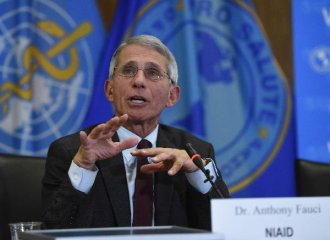WASHINGTON, Aug. 5 (Xinhua) -- Amid the recent resurgence of COVID-19 cases, the U.S. economy clearly needs more fiscal support to move into the recovery phase from the reopening phase, a senior Federal Reserve official said Wednesday.
"The increase in virus cases that we've seen in recent weeks has raised the downside risks to the outlook and is a stark reminder that there are several different scenarios that could play out," Loretta Mester, president of the Federal Reserve Bank of Cleveland said at a virtual event.
"Whether the rise in cases and the deceleration in activity prove to be temporary or more persistent remains to be seen. At the very least, they suggest that the economy will be in the reopening phase for a while longer," Mester said.
At least 24 U.S. states have either paused or partially reversed their efforts to reopen their economies so as to limit the spread of the virus, according to local media.
"It is also clear that more fiscal support is needed to provide a bridge for households, small businesses, and state and local municipalities that have borne the brunt of the economic shutdown until the recovery is sustainably in place," Mester said, adding the recovery will take some time because significant sectoral reallocations will need to occur.
"Assuming that the virus gets under control once again and people feel safe enough and businesses confident enough to re-engage in economic activity, the economy will move from the reopening phase to the recovery phase," she said.
Mester estimated that by the end of this year, U.S. economic output will still be about 6 percent below its level at the end of last year and the unemployment rate will remain elevated at around 9 percent.
The U.S. economy contracted at an annual rate of 32.9 percent in the second quarter of the year, the steepest decline since the government began keeping records in 1947, the Commerce Department reported last week.
Mester's remarks came as Republican and Democratic lawmakers remain at odds over the next COVID-19 relief bill. The extra 600-U.S.-dollar unemployment benefits per week for roughly 30 million Americans expired last week as the two sides failed to reach a deal.



















Latest comments